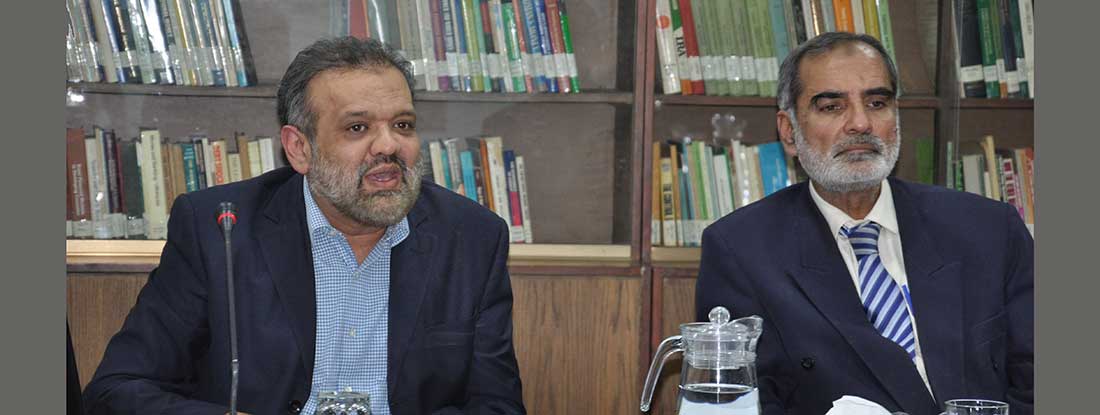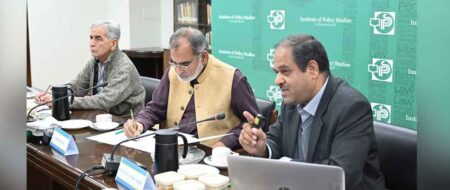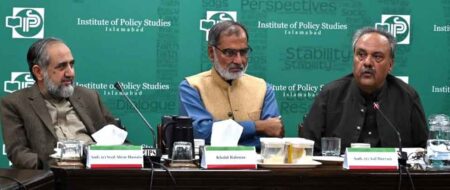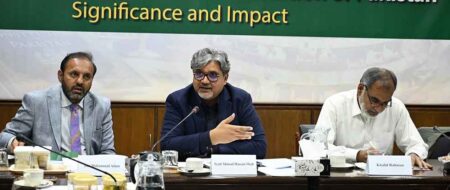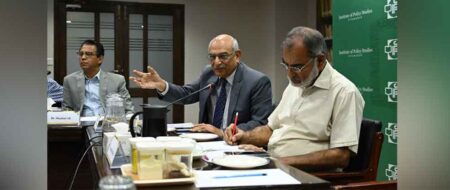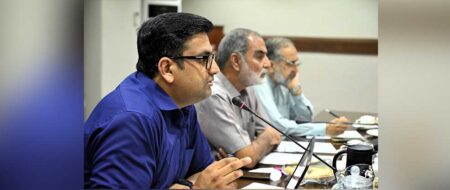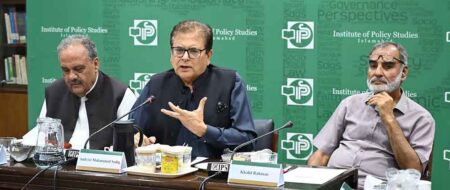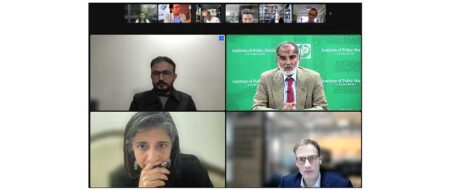‘Zakat and Usher modelling to address contemporary needs’
An interactive roundtable session titled ‘Zakat and Usher modelling to address contemporary needs’ was held on February 14, 2020, aimed at deliberating on a practical model of Zakat that addresses the needs and requirements of the modern world, with special emphasis on Pakistan.
Qanit Khalil Ullah, general manager, Finance at Ufone Pakistan and Dr Syed Waheed Ahmad, a lecturer from Dawah Academy, International Islamic University (IIU), Islamabad, presented their work on Zakat and Usher on the ocassion, whereas a select gathering of academics and experts including Chairman IPS Khalid Rahman, Dr Atiquzzafar Khan, director general, IIIE, International Islamic University, Islamabad, Prof Dr Abdul Saboor, dean, Dept. of Economics, PMAS Arid Agriculture University, Rawalpindi, Prof Dr Abdul Quddus Suhaib, director, Islamic Research Center, Bahauddin Zakariya University (BZU), Multan, Dr Ghulam Mustafa Sajid, assistant professor, IIIE, IIUI, Dr Ilyas and Dr Muhammad Sajjad from Allama Iqbal Open University (AIOU), Naufil Shahrukh, GM Operations, IPS, Syed Nadeem Farhat Gillani, senior research officer, IPS and Asim Ehsan, a research officer at IPS attended the event.
Presenting his work on Zakat and Usher modelling, Dr Qanit Khalil Ullah emphasized on the importance of wealth tax around the globe and its role in addressing the economic problems faced by Pakistan in current times. He presented that Zakat is the solution for eradication of world’s poverty and removal of inequality of wealth. He examined each sector of Pakistan’s economy in the context of Zakat and Usher, and estimated/evaluated revenue potential of these sectors of Pakistan economy. In the end, he presented recommendations for untapping the huge potential revenues under Zakat and Usher, and ways for its proper distribution in order to achieve the true objectives of Zakat and Usher.
Dr Waheed briefly presented his PhD thesis, proposing Zakat as a means for economic stability for Pakistan. His detailed thesis included, fiqh and legal aspects of Zakat-related legislation in Pakistan, as well as revenue generation through collection of zakat under the legislation. Dr Waheed presented economic issues and shortfall of national revenue of Pakistan and proposed Zakat as solution.
The presentations were followed by an interactive discussion in which participants shared their feedback and expressed their viewpoint on the way forward to devise a workable model of Zakat and Usher in compliance with the contemporary needs.
The session was concluded with the remarks of Chairman IPS Khalid Rahman, who emphasized on looking at zakat from the supply side rather than the demand side. He maintained that the Western mindset has penetrated so much in our social and political life that it has diverted our attention from the potential that the system of Zakat and Usher offers. He stressed on the importance of holding such sessions frequently, suggesting Prof Dr Abdul Quddus Suhaib, Dr Muhammad Sajjad and Dr Ghulam Mustafa Sajid to share their presentations on different models of Zakat prevailing in other parts of the world.


